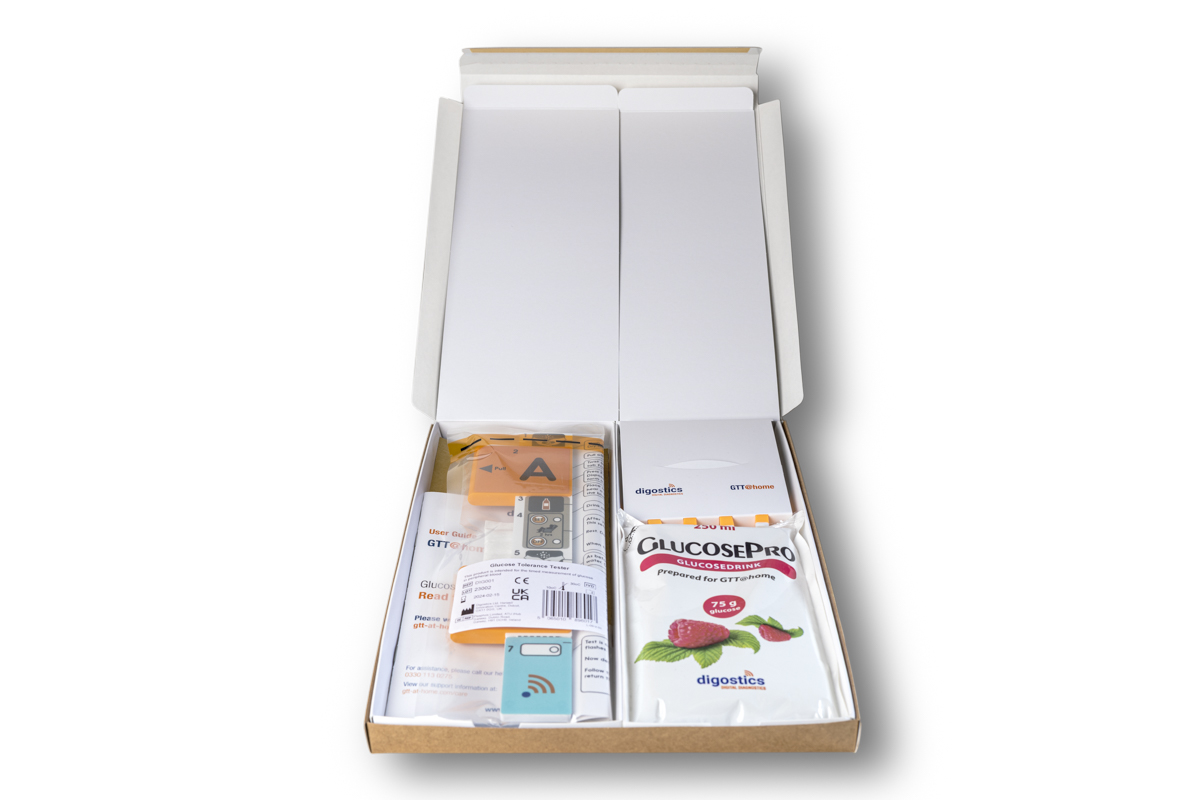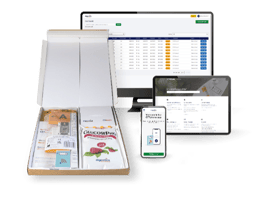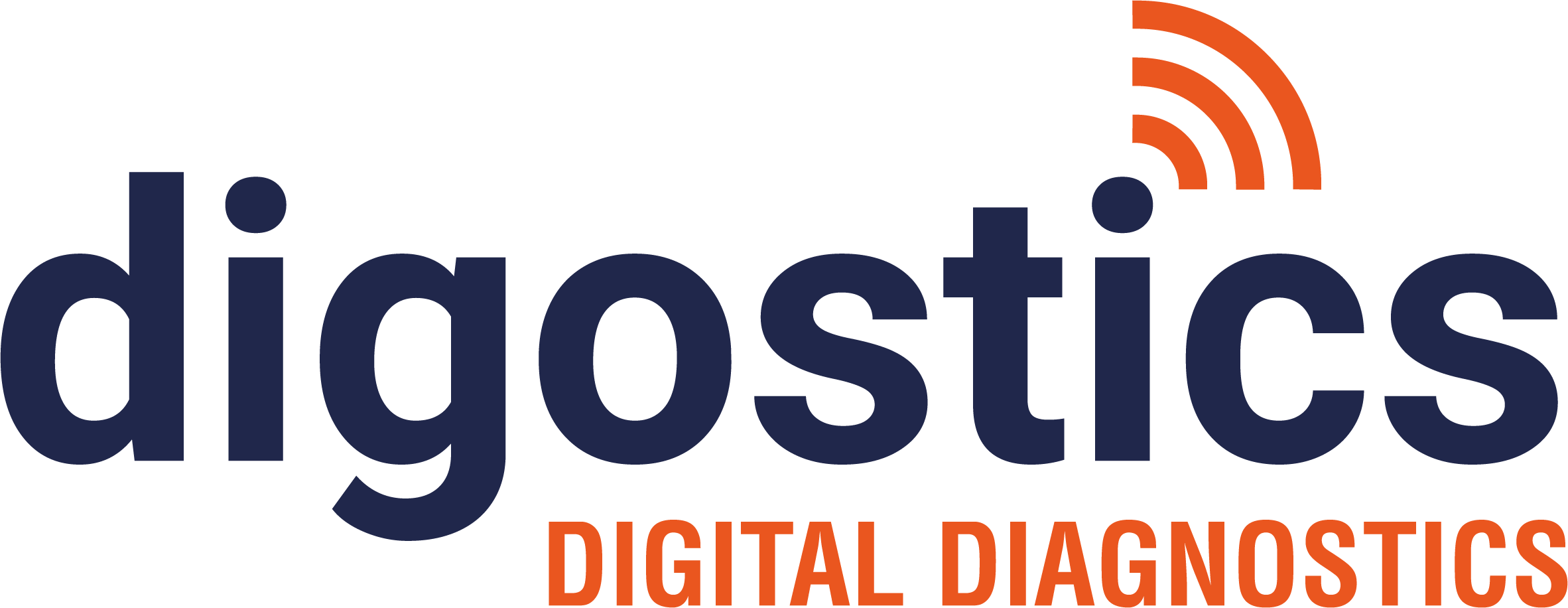New at-home test delivers more accurate gestational diabetes diagnoses as study reveals NHS misses more than 50% of cases
New at-home test delivers more accurate gestational diabetes diagnoses as study reveals NHS misses more than 50% of cases
NHS Hospital Trust Pilot of New Testing Technology Sees Pregnant Women in Southampton Become the First Patients Globally to Access Gestational Diabetes Testing at Home.
NHS Hospital Trust Pilot of New Testing Technology Sees Pregnant Women in Southampton Become the First Patients Globally to Access Gestational Diabetes Testing at Home.
Oxford, United Kingdom 18/12/2024 – New research published in Diabetic Medicine this week found that the standard NHS procedures for processing gestational diabetes blood sugar tests were leading to more than 50% of cases being missed. If undiagnosed or untreated gestational diabetes is associated with serious complications for the mother, such as the development of preeclampsia, and for the baby an increased risk of admission to the Neonatal Intensive Care Unit for breathing difficulties, low blood sugar and in some severe cases, a risk of major complications including stillbirth and death. These risks can be reduced with timely and accurate diagnosis and intervention during the pregnancy.
The study, carried out by Professor Claire Meek of the University of Leicester and colleagues at the University of Cambridge with funding from the National Institute of Health and Care Research (NIHR) found that processing the blood sugar test of mothers at risk of gestational diabetes (GDM) more quickly could lead to more accurate diagnosis of this serious condition.
A new world-first at-home oral glucose tolerance test (OGTT), developed by British digital clinical diagnostics company Digostics (GTT@home), analyses the blood sugar tests immediately, with results instantly shared with the requesting antenatal care team for diagnosis and clinical review. This overcomes the problems with sample processing and delayed testing carried out in hospital or community-based OGTTs as identified by Professor Meek’s study. The GTT@home test is already being successfully used by NHS trusts.
Using standard NHS sample processing procedures, 9% of women in the study were diagnosed with gestational diabetes. The researchers found that when blood was processed more quickly, 22% of women in the study were found to have gestational diabetes, a difference of 13%. Without faster sample processing, more than half the women found to have gestational diabetes would have gone undiagnosed.
Download the GTT@home for Gestational Diabetes Datasheet
Professor of Chemical Pathology and Diabetes in Pregnancy, Claire Meek said: “Gestational diabetes, which affects women in pregnancy, is very common in the UK and causes complications at the time of birth, affecting both mother and child. Fortunately, most complications can be prevented by accurate diagnosis and access to treatment. However, if the diagnosis is not accurate, then affected mothers cannot access the treatment they need.”
The Digostics GTT@home test not only avoids the false negative results issues identified in Professor Meek’s study but is also more convenient and accessible as the patient doesn’t have to travel, especially as the test must be carried out first thing in the morning. Travelling to take the test means patients must arrange childcare, take time off work, or manage transportation, and studies have shown that women from socio-economically deprived groups, black ethnicity, or with mental health issues are less likely to attend or complete OGTT appointments. With at-home testing women who may have struggled to attend clinic-based tests can take the test in comfort on the day most convenient for them.
James Jackson, Founder and CEO of Digostics, commented, “Professor Meek’s research definitively shows that in the UK standard OGTT testing is failing to diagnose more than 50% of women who have gestational diabetes during pregnancy. Without a diagnosis, the risks of gestational diabetes cannot be mitigated and mothers and babies are being left at risk of serious, lifelong, and life-threatening health complications.”
“The at-home OGTT we have developed avoids the sample processing delays identified in Professor Meek’s research, and we’re identifying a higher rate of gestational diabetes than in-clinic OGTTs. Patients find the test easy to use and we’re extending access to screening to women from underserved patient groups frequently marginalised by in-clinic OGTT provision. The GTT@home test is in use across a number of NHS Trusts in England, and we are in discussions with many more to make this important new technology available to more expectant mothers who are at risk of gestational diabetes.”

The GTT@home test kit is comprised of the GTT@home tester device, a glucose drink and finger prickers.
"We hope this revolutionary new at-home test is going to dramatically change the way we deliver gestational diabetes testing during antenatal care."
Dr Matthew Coleman




Click the button below for more GTT@home product-specific information exploring:
• the GTT@home test kit's contents
• the novel GTT@home test device
• at-home versus in-clinic test comparisons
• patient and healthcare professional support


Click the button below for more GTT@home product-specific information exploring:
• the GTT@home test kit's contents
• the novel GTT@home test device
• at-home versus in-clinic test comparisons
• patient and healthcare professional support
About Digostics
Far too many people across the world are living with undiagnosed diabetes.
UK-based Digostics' mission is to enable healthcare providers to identify everyone with diabetes, and those at risk of developing diabetes, by eliminating the common barriers that inhibit accurate and timely testing using the gold standard oral glucose tolerance test (OGTT).
Digostics is proud to offer GTT@home - the world’s first home OGTT offering and the most accessible and scalable way for clinical teams to realise their diabetes testing objectives.
To learn more, visit www.digostics.com
About University Hospital NHS Foundation Trust
University Hospital Southampton NHS Foundation Trust provides services to some 1.9 million people living in Southampton and south Hampshire, plus specialist services such as neurosciences, cardiac services and children's intensive care to more than 3.7 million people in central southern England and the Channel Islands.
UHS is one of the largest acute teaching trusts in England with a staff of 13,000 and a turnover of more than £1bn in 2020/21.
We are one of only two major trauma centres in the South of England for both adults and children.
UHS is consistently one of the UK’s highest recruiting trusts of patients to clinical trials.
Could GTT@home be of assistance to your patients?
Please get in touch by completing the form below or calling us on +44 (0)330 113 9145.
References
¹ International Diabetes Federation - Diabetes Atlas 10th Edition 2021
² NHS Gestational Diabetes Overview
³ International Diabetes Federation - Care and Prevention - Gestational Diabetes
† Pubmed - Future risk of diabetes in mother and child after gestational diabetes mellitus 2009
Images of Matthew Coleman and of University Hospital Southampton's premises are kindly provided by University Hospital Southampton NHS Foundation Trust.
